AAG Presidential Achievement Award
Deadline: December 31, 2025
The AAG Presidential Achievement Award was established by the AAG Council to recognize individuals who have made long-standing and distinguished contributions to the discipline of geography. The AAG Past President chooses up to two individuals to recognize during the year they serve in office.
AAG Presidential Achievement Award Recipients
Mauris non tempor quam, et lacinia sapien. Mauris accumsan eros eget libero posuere vulputate. Etiam elit elit, elementum sed varius at, adipiscing vitae est. Sed nec felis pellentesque, lacinia dui sed, ultricies sapien. Pellentesque orci lectus, consectetur vel posuere.

Max Liboiron
Max Liboiron is recognized for their extraordinary work in developing participatory and anticolonial environmental science practices. Via careful critique of current academic norms and concrete examples of how we can do better, Dr. Liboiron has inspired students and scholars across Geography and the environmental sciences to change their lab manuals, citation practices, collaboration protocols, and research methods. Rather than simply calling researchers out for extractive science, Dr. Liboiron calls researchers in to participatory and reciprocal mentorship and research practices through academic publications, such as Pollution is Colonialism (2021, Duke University Press), online resources such as the CLEAR Lab Manual, and short films made in collaboration with Couple3 that “open the black box of what seem like mundane laboratory practices… that are the main vehicles for equity, humility, accountability, and the creation of a lab collective. Our goal: to do science differently, in ways that do not replicate existing power dynamics.”
Dr. Liboiron, a Red River Métis/Michif and settler raised in Lac la Biche, Treaty 6 territory, is a member of the Geography Department at Memorial University in Newfoundland, Canada. Their interdisciplinary, deeply community-engaged research brings together discard studies, environmental science, Geography, Indigenous Studies and STS in the study marine plastics.

2025 AAG Presidential Achievement Award
Max Liboiron
2025 AAG Presidential Achievement Award
Max Liboiron is recognized for their extraordinary work in developing participatory and anticolonial environmental science practices. Via careful critique of current academic norms and concrete examples of how we can do better, Dr. Liboiron has inspired students and scholars across Geography and the environmental sciences to change their lab manuals, citation practices, collaboration protocols, and research methods. Rather than simply calling researchers out for extractive science, Dr. Liboiron calls researchers in to participatory and reciprocal mentorship and research practices through academic publications, such as Pollution is Colonialism (2021, Duke University Press), online resources such as the CLEAR Lab Manual, and short films made in collaboration with Couple3 that “open the black box of what seem like mundane laboratory practices… that are the main vehicles for equity, humility, accountability, and the creation of a lab collective. Our goal: to do science differently, in ways that do not replicate existing power dynamics.”
Dr. Liboiron, a Red River Métis/Michif and settler raised in Lac la Biche, Treaty 6 territory, is a member of the Geography Department at Memorial University in Newfoundland, Canada. Their interdisciplinary, deeply community-engaged research brings together discard studies, environmental science, Geography, Indigenous Studies and STS in the study marine plastics.

Chérie Rivers
Chérie Rivers is recognized for her radical interdisciplinary and participatory geographic work, which weaves together music, filmmaking, decolonial pedagogy, African studies, and Black Ecologies. A scholar of many talents, Dr. Rivers has produced two monographs– Necessary Noise: Music, Film, and Charitable Imperialism in the East of Congo (Oxford University Press, 2016), and To Be Nsala’s Daughter: Decomposing the Colonial Gaze (Duke 2023), as well as an edited volume, The Art of Emergency: Aesthetics and Aid in African Crises (Oxford University Press, 2020). She has directed and scored multiple films. She has worked with nonprofits in the Congo and founded a biodynamic educational farm, Dandelion’, that showcases African-American and Indigenous agro-ecology in North Carolina. She has developed important tools for decolonial pedagogy and land-based learning. Throughout, her goal is to “interrupt… modern colonialism with the transformative power of imagination” asking both what sustains us, and what we want to sustain.
Dr. Rivers is a member of the Geography Department at the University of North Carolina-Chapel Hill. She earned a B.M. in film scoring from the Berklee College of Music, and an A.M. in Ethnomusicology and Ph.D. in African Studies from Harvard University.

2025 AAG Presidential Achievement Award
Chérie Rivers
2025 AAG Presidential Achievement Award
Chérie Rivers is recognized for her radical interdisciplinary and participatory geographic work, which weaves together music, filmmaking, decolonial pedagogy, African studies, and Black Ecologies. A scholar of many talents, Dr. Rivers has produced two monographs– Necessary Noise: Music, Film, and Charitable Imperialism in the East of Congo (Oxford University Press, 2016), and To Be Nsala’s Daughter: Decomposing the Colonial Gaze (Duke 2023), as well as an edited volume, The Art of Emergency: Aesthetics and Aid in African Crises (Oxford University Press, 2020). She has directed and scored multiple films. She has worked with nonprofits in the Congo and founded a biodynamic educational farm, Dandelion’, that showcases African-American and Indigenous agro-ecology in North Carolina. She has developed important tools for decolonial pedagogy and land-based learning. Throughout, her goal is to “interrupt… modern colonialism with the transformative power of imagination” asking both what sustains us, and what we want to sustain.
Dr. Rivers is a member of the Geography Department at the University of North Carolina-Chapel Hill. She earned a B.M. in film scoring from the Berklee College of Music, and an A.M. in Ethnomusicology and Ph.D. in African Studies from Harvard University.

Ruth Wilson Gilmore
Dr. Ruth Wilson Gilmore is recognized for her extraordinary contributions to the confrontation with racial capitalism and the conditions necessary for structural reform, particularly of carceral institutions and prison systems, mass punishment, and criminalization and race. She has also shared her expertise in labor and social movements, the intersections of race and gender, the African Diaspora and Black Radical tradition.
As Director of the Center for Place, Culture, and Politics at the Graduate Center at CUNY, she has mentored geographers with her boundless dedication to the possible. Hope is a pedagogical tool in Dr. Gilmore’s hands, used incisively to question the status quo and imagine a different future of restorative, rather than punitive, approaches to justice and civic life. She is also the author or co-author of more than a dozen books including The Golden Gulag: Prisons, Surplus, Crisis, and Opposition in Globalizing California (Berkeley: University of California Press, 2007) and Change Everything: Racial Capitalism and the Case for Abolition (ed. Naomi Murakawa; Haymarket 2023), as well as numerous papers.
A frequent honoree for her visionary work, Gilmore is the recipient of the 2022 Marguerite Casey Freedom Scholar Prize, a member of the American Academy of Arts and Sciences since 2021, recipient of the 2021 National Book Foundation Prize, and co-honoree for the 2020 Lannan Foundation Lifetime Cultural Freedom Prize (with Angela Y. Davis, and Michael Ryan Davis). From AAG, she has received the 2020 Lifetime Achievement Honors, and the 2014 Harold Rose Award for Anti-Racist Research and Practice.

2024 AAG Presidential Achievement Award
Ruth Wilson Gilmore
2024 AAG Presidential Achievement Award
Dr. Ruth Wilson Gilmore is recognized for her extraordinary contributions to the confrontation with racial capitalism and the conditions necessary for structural reform, particularly of carceral institutions and prison systems, mass punishment, and criminalization and race. She has also shared her expertise in labor and social movements, the intersections of race and gender, the African Diaspora and Black Radical tradition.
As Director of the Center for Place, Culture, and Politics at the Graduate Center at CUNY, she has mentored geographers with her boundless dedication to the possible. Hope is a pedagogical tool in Dr. Gilmore’s hands, used incisively to question the status quo and imagine a different future of restorative, rather than punitive, approaches to justice and civic life. She is also the author or co-author of more than a dozen books including The Golden Gulag: Prisons, Surplus, Crisis, and Opposition in Globalizing California (Berkeley: University of California Press, 2007) and Change Everything: Racial Capitalism and the Case for Abolition (ed. Naomi Murakawa; Haymarket 2023), as well as numerous papers.
A frequent honoree for her visionary work, Gilmore is the recipient of the 2022 Marguerite Casey Freedom Scholar Prize, a member of the American Academy of Arts and Sciences since 2021, recipient of the 2021 National Book Foundation Prize, and co-honoree for the 2020 Lannan Foundation Lifetime Cultural Freedom Prize (with Angela Y. Davis, and Michael Ryan Davis). From AAG, she has received the 2020 Lifetime Achievement Honors, and the 2014 Harold Rose Award for Anti-Racist Research and Practice.

J. Marshall Shepherd
Dr. J. Marshall Shepherd is the Georgia Athletic Association Distinguished Professor of Geography and Atmospheric Sciences at the University of Georgia and serves as associate director of Climate and Outreach for the Institute for Resilient Infrastructure Systems. He is a Full Professor in the Department of Geography where he was a previous Associate Department Head. In 2023, he was appointed associate dean for Research, Scholarship and Partnerships in the Franklin College of Arts and Sciences at the University of Georgia.
Dr. Shepherd is recognized for the creative use of his expertise on weather, climate, and remote sensing toward raising public awareness, increasing the public’s understanding of climate change, and drawing attention to the importance of geography and the need to create a more diverse, just discipline. His areas of research include urban climate, hydrometeorological extremes, weather-climate risk, and innovative outreach strategies.
Dr. Shepherd’s extensive public scholarship includes hosting The Weather Channel’s award-winning Weather Geeks and serving as a senior contributor to Forbes Magazine. He routinely appears on CBS Face The Nation, NOVA, The Today Show, CNN, Fox News, The Weather Channel, and several other programs and stations. Nearly 3 million people have viewed his three TED Talks, and he frequently advises key leaders at NASA, the White House, Congress, Department of Defense, and officials from foreign countries. Dr. Shepherd has written editorials for CNN, The Washington Post, The Atlanta Journal-Constitution, and other outlets, and has been featured in Time Magazine, Popular Mechanics, and NPR Science Friday. With nearly 100 peer-reviewed scholarly publications, Dr. Shepherd has also attracted several millions of dollars in extramural research support from NASA, National Science Foundation, Department of Energy, Defense Threat Reduction Agency, U.S. Forest Service and the Ray C. Anderson Foundation, and was also in leading the effort for UGA to become the 78th member of the University Corporation for Atmospheric Research (UCAR).
The recipient of many honors, including the AAG Media Achievement award, Dr. Shepherd was elected to the National Academy of Sciences, National Academy of Engineering, and the American Academy of Arts and Sciences. He remains dedicated to creating curiosity and opportunities for students, and especially Black students, to increase diversity in the discipline. He has authored a children’s book on weather and weather instruments called Dr. Fred’s Weather Watch, as well as a book entitled The Race Awakening of 2020: A 6-Step Guide to Move Forward. He co-founded the Alcova Elementary Weather Science Chat series that exposes K-5 students to world-class scientists.

2024 AAG Presidential Achievement Award
J. Marshall Shepherd
2024 AAG Presidential Achievement Award
Dr. J. Marshall Shepherd is the Georgia Athletic Association Distinguished Professor of Geography and Atmospheric Sciences at the University of Georgia and serves as associate director of Climate and Outreach for the Institute for Resilient Infrastructure Systems. He is a Full Professor in the Department of Geography where he was a previous Associate Department Head. In 2023, he was appointed associate dean for Research, Scholarship and Partnerships in the Franklin College of Arts and Sciences at the University of Georgia.
Dr. Shepherd is recognized for the creative use of his expertise on weather, climate, and remote sensing toward raising public awareness, increasing the public’s understanding of climate change, and drawing attention to the importance of geography and the need to create a more diverse, just discipline. His areas of research include urban climate, hydrometeorological extremes, weather-climate risk, and innovative outreach strategies.
Dr. Shepherd’s extensive public scholarship includes hosting The Weather Channel’s award-winning Weather Geeks and serving as a senior contributor to Forbes Magazine. He routinely appears on CBS Face The Nation, NOVA, The Today Show, CNN, Fox News, The Weather Channel, and several other programs and stations. Nearly 3 million people have viewed his three TED Talks, and he frequently advises key leaders at NASA, the White House, Congress, Department of Defense, and officials from foreign countries. Dr. Shepherd has written editorials for CNN, The Washington Post, The Atlanta Journal-Constitution, and other outlets, and has been featured in Time Magazine, Popular Mechanics, and NPR Science Friday. With nearly 100 peer-reviewed scholarly publications, Dr. Shepherd has also attracted several millions of dollars in extramural research support from NASA, National Science Foundation, Department of Energy, Defense Threat Reduction Agency, U.S. Forest Service and the Ray C. Anderson Foundation, and was also in leading the effort for UGA to become the 78th member of the University Corporation for Atmospheric Research (UCAR).
The recipient of many honors, including the AAG Media Achievement award, Dr. Shepherd was elected to the National Academy of Sciences, National Academy of Engineering, and the American Academy of Arts and Sciences. He remains dedicated to creating curiosity and opportunities for students, and especially Black students, to increase diversity in the discipline. He has authored a children’s book on weather and weather instruments called Dr. Fred’s Weather Watch, as well as a book entitled The Race Awakening of 2020: A 6-Step Guide to Move Forward. He co-founded the Alcova Elementary Weather Science Chat series that exposes K-5 students to world-class scientists.
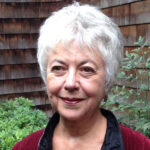
Gillian Hart
Gillian Hart is recognized for her foundational work in the critical human geography of development, agrarian political economy, and postcolonial Marxism.
Dr. Hart has inspired a generation of geographers with her theorizations of relational comparison, conjunctural analysis, and critical ethnography as powerful methodologies for interrogating contemporary social relations. After her earlier research on agrarian Southeast Asia, including groundbreaking contributions to feminist debates about gender and the household, Dr. Hart turned her scholarly focus to post-Apartheid South Africa. Her ground-breaking book Disabling Globalization critiqued discourses of globalization through attention to multiple social-spatial trajectories, while Rethinking the South African Crisis analyzed nationalism and the proliferation of populist politics, focusing on local governments as key sites of contradiction.
Dr. Hart has been a leading figure in demonstrating and interpreting Antonio Gramsci’s contemporary salience, and in offering geographical explications of the contemporary global politics of resurgent nationalisms and authoritarian neoliberalism. At UC Berkeley, she chaired the Center for African Studies for five years and co-chaired the Development Studies major for two decades. She was an Honorary Professor at the University of KwaZulu-Natal and since 2016 has been Distinguished Professor at the University of the Witwatersrand in Johannesburg. She was awarded the Vega Medal by the Swedish Society for Anthropology and Geography in 2018.

2023 AAG Presidential Achievement Award
Gillian Hart
2023 AAG Presidential Achievement Award
Gillian Hart is recognized for her foundational work in the critical human geography of development, agrarian political economy, and postcolonial Marxism.
Dr. Hart has inspired a generation of geographers with her theorizations of relational comparison, conjunctural analysis, and critical ethnography as powerful methodologies for interrogating contemporary social relations. After her earlier research on agrarian Southeast Asia, including groundbreaking contributions to feminist debates about gender and the household, Dr. Hart turned her scholarly focus to post-Apartheid South Africa. Her ground-breaking book Disabling Globalization critiqued discourses of globalization through attention to multiple social-spatial trajectories, while Rethinking the South African Crisis analyzed nationalism and the proliferation of populist politics, focusing on local governments as key sites of contradiction.
Dr. Hart has been a leading figure in demonstrating and interpreting Antonio Gramsci’s contemporary salience, and in offering geographical explications of the contemporary global politics of resurgent nationalisms and authoritarian neoliberalism. At UC Berkeley, she chaired the Center for African Studies for five years and co-chaired the Development Studies major for two decades. She was an Honorary Professor at the University of KwaZulu-Natal and since 2016 has been Distinguished Professor at the University of the Witwatersrand in Johannesburg. She was awarded the Vega Medal by the Swedish Society for Anthropology and Geography in 2018.

Matthew Turner
Matthew Turner is recognized for his extensive and profoundly interdisciplinary contributions to nature-society geography, particularly of arid and semi-arid regions of West Africa. His research blends a deep understanding of place and cultural practices with expertise in biophysical geography and geospatial analysis.
Bringing long-term ethnographic fieldwork together with household surveys, GIS, remote sensing, and soil analysis, Dr. Turner has made substantial contributions to political ecology, development geography, common property theory, the ecology of tropical savanna vegetation, and rangeland ecology. Moreover, through the integration of rigorous social theoretical engagement with mixed social science and ecological methods, Dr. Turner has fundamentally challenged dominant narratives surrounding environmental science and resource management in the Sahel and across semi-arid ecosystems more broadly. His scholarly interventions also include bringing political ecology together with Science and Technology Studies, and advancing geographical knowledge about pastoralism, gendered dimensions of food insecurity, and climate change and conflict.
Dr. Turner has served as department chair as well as director of the University of Wisconsin Land Tenure Center. Known as an extraordinarily generous mentor to students and junior faculty alike, Dr. Turner has advised 26 Ph.D. students, 43 graduate students overall, and served on roughly 150 additional graduate committees. He is Vilas Distinguished Achievement Professor of Geography at the University of Wisconsin Madison.

2023 AAG Presidential Achievement Award
Matthew Turner
2023 AAG Presidential Achievement Award
Matthew Turner is recognized for his extensive and profoundly interdisciplinary contributions to nature-society geography, particularly of arid and semi-arid regions of West Africa. His research blends a deep understanding of place and cultural practices with expertise in biophysical geography and geospatial analysis.
Bringing long-term ethnographic fieldwork together with household surveys, GIS, remote sensing, and soil analysis, Dr. Turner has made substantial contributions to political ecology, development geography, common property theory, the ecology of tropical savanna vegetation, and rangeland ecology. Moreover, through the integration of rigorous social theoretical engagement with mixed social science and ecological methods, Dr. Turner has fundamentally challenged dominant narratives surrounding environmental science and resource management in the Sahel and across semi-arid ecosystems more broadly. His scholarly interventions also include bringing political ecology together with Science and Technology Studies, and advancing geographical knowledge about pastoralism, gendered dimensions of food insecurity, and climate change and conflict.
Dr. Turner has served as department chair as well as director of the University of Wisconsin Land Tenure Center. Known as an extraordinarily generous mentor to students and junior faculty alike, Dr. Turner has advised 26 Ph.D. students, 43 graduate students overall, and served on roughly 150 additional graduate committees. He is Vilas Distinguished Achievement Professor of Geography at the University of Wisconsin Madison.
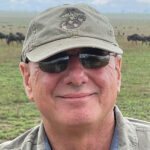
Michael DeVivo
After a career in the military and in the merchant marines, Mike DeVivo began a new life as a geographer. Since then, he has defined the value of the community college as a nurturing ground for new geography students by singlehandedly managing the geography program at Grand Rapids Community College. In his 30 years as an instructor, DeVivo has turned many students into geographers, several of whom have gone on to careers in the field.
Beyond teaching and advising, Mike has chronicled the field of geography. His book, Leadership in American Academic Geography: The Twentieth Century, looked at how geography chairs made a difference in the success of many prominent geography departments. His Conversation with a Geographer oral history series has enabled us to hear from these leaders directly. Mike has also reflected on the role of geographers in community colleges, many of whom stand alone in their institutions.
Prof. DeVivo maintains a steady involvement with the AAG and with higher education in general. He serves on the Healthy Departments Committee, he is active in the International Geographical Union Commissions on the History of Geography and on African Studies, and he has long demonstrated a passion for the field, typified in Mike’s motto: “Geography Lives!”

2021 AAG Presidential Achievement Award
Michael DeVivo
2021 AAG Presidential Achievement Award
After a career in the military and in the merchant marines, Mike DeVivo began a new life as a geographer. Since then, he has defined the value of the community college as a nurturing ground for new geography students by singlehandedly managing the geography program at Grand Rapids Community College. In his 30 years as an instructor, DeVivo has turned many students into geographers, several of whom have gone on to careers in the field.
Beyond teaching and advising, Mike has chronicled the field of geography. His book, Leadership in American Academic Geography: The Twentieth Century, looked at how geography chairs made a difference in the success of many prominent geography departments. His Conversation with a Geographer oral history series has enabled us to hear from these leaders directly. Mike has also reflected on the role of geographers in community colleges, many of whom stand alone in their institutions.
Prof. DeVivo maintains a steady involvement with the AAG and with higher education in general. He serves on the Healthy Departments Committee, he is active in the International Geographical Union Commissions on the History of Geography and on African Studies, and he has long demonstrated a passion for the field, typified in Mike’s motto: “Geography Lives!”
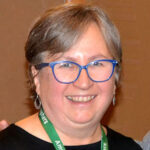
Jacqueline Housel
There are many opportunities found in a community college education, and Jacqueline (Jacquie) Housel has demonstrated these as a teacher, a mentor, and an advocate. Jacquie spent most of her career at Sinclair Community College, near Dayton, Ohio, where she has taught the value of a geographical perspective to students, many of whom have gone on to spread geography themselves.
Prof. Housel’s graduate work examined racialized patterns in urban areas. As a professor, she continued to publish on the role of race and refugees in journals such as Urban Studies, Urban Geography and Social and Cultural Geography. But her more recent works – in the Professional Geographer and other outlets – have focused on documenting the role and challenges inherent in community colleges. In these pieces, Jacquie shows just how pivotal two-year colleges are in shaping future geographers, and how community college professors and stand-alone geographers need to forge collaborations to maximize their impact on the curriculum.
Housel has consistently advocated for the inclusion of community college professors in the academy, and especially organizations such as the AAG. She was the first community college professor to head the East Lakes Division of the AAG, she led the stand-alone geographers and the community college affinity groups, has worked on establishing an AP GIS program, and serves on the Healthy Departments Committee. Jacquie also engages in the community by improving police-neighborhood relations and in educating her neighbors on local immigrants/refugees.

2021 AAG Presidential Achievement Award
Jacqueline Housel
2021 AAG Presidential Achievement Award
There are many opportunities found in a community college education, and Jacqueline (Jacquie) Housel has demonstrated these as a teacher, a mentor, and an advocate. Jacquie spent most of her career at Sinclair Community College, near Dayton, Ohio, where she has taught the value of a geographical perspective to students, many of whom have gone on to spread geography themselves.
Prof. Housel’s graduate work examined racialized patterns in urban areas. As a professor, she continued to publish on the role of race and refugees in journals such as Urban Studies, Urban Geography and Social and Cultural Geography. But her more recent works – in the Professional Geographer and other outlets – have focused on documenting the role and challenges inherent in community colleges. In these pieces, Jacquie shows just how pivotal two-year colleges are in shaping future geographers, and how community college professors and stand-alone geographers need to forge collaborations to maximize their impact on the curriculum.
Housel has consistently advocated for the inclusion of community college professors in the academy, and especially organizations such as the AAG. She was the first community college professor to head the East Lakes Division of the AAG, she led the stand-alone geographers and the community college affinity groups, has worked on establishing an AP GIS program, and serves on the Healthy Departments Committee. Jacquie also engages in the community by improving police-neighborhood relations and in educating her neighbors on local immigrants/refugees.
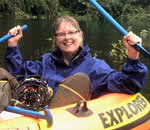
Sally Horn
2020
Sally Horn has made significant contributions in the area of paleoenvironmental change research in underexplored neotropical regions. Dr. Horn’s research specialties are in Quaternary vegetation and climate change in the Circum-Caribbean region and southeastern U.S.A., Forest ecology and fire history, Páramo ecosystems and their long-term history (including glacial history), and human influences on vegetation. Her methodologies include coring sediments in remote lakes in the mountains of Costa Rica, and analyzing them for multiple environmental and physical indicators of change, ranging from pollen to isotopes. Dr. Horn’s research contributes new knowledge in tropical environmental change, and in methodological advances for detecting and measuring change. Understanding the connections between long-term environmental changes and human impacts and responses in the tropics is critical given the tropics are the home of a significant proportion of Earth’s living terrestrial biomass and species diversity. Her scholarship has been honored at university, national and international levels, including the Carl O. Sauer Award (Conference of Latin American Geographers, 2002) the AAG’s Barry Bishop Mountain Geography Award (2010), AAG’s James J. Parsons Biogeography Specialty Group Award (2014), the SEDAAG Lifetime Achievement Award (2014), and election as a AAAS Fellow in 2003. Dr. Horn is also recognized for her enthusiastic devotion to educating the next generation of scientists, as evidenced by her many teaching and advising awards, by her numerous NSF Research Experience for Undergraduates and Doctoral Dissertation Research Improvement grants for students to conduct field research in the tropics and the southeastern US, the lab, and in publishing; by supervising undergraduate honors theses; and by her extraordinary productivity of graduate students. Dr. Horn has advised 34 Masters and 14 PhDs (including 6 in progress), and also served on the committees of 99 MA and PhD Students, in programs ranging from Geography to Anthropology to Ecology. The lasting impact of her scholarship is evidenced by her more than 150 peer-reviewed articles, book chapters and edited volumes, and by her multiple grants from such sources as NSF, the Mellon Foundation, and the US Fish and Wildlife Service. Dr. Horn’s loyal service to the AAG includes numerous presenter (since 1983!), panelist, chair and organizer roles at AAG National and Regional Division Meetings, AAG Honors and Nominating Committees, and leadership roles with AAG’s Biogeography and Paleoenvironmental Change Specialty Groups. Dr. Sally Horn has spent her career selflessly promoting the careers of students and her fellow scholars, and it is time for us to honor her for her humble labors for the betterment of us all, in addition to celebrating her unmatched scholarly impacts on the fields of biogeography and paleoenvironmental change. (Photo by Erik Johanson)

2020 AAG Presidential Achievement Award
Sally Horn
2020 AAG Presidential Achievement Award
2020
Sally Horn has made significant contributions in the area of paleoenvironmental change research in underexplored neotropical regions. Dr. Horn’s research specialties are in Quaternary vegetation and climate change in the Circum-Caribbean region and southeastern U.S.A., Forest ecology and fire history, Páramo ecosystems and their long-term history (including glacial history), and human influences on vegetation. Her methodologies include coring sediments in remote lakes in the mountains of Costa Rica, and analyzing them for multiple environmental and physical indicators of change, ranging from pollen to isotopes. Dr. Horn’s research contributes new knowledge in tropical environmental change, and in methodological advances for detecting and measuring change. Understanding the connections between long-term environmental changes and human impacts and responses in the tropics is critical given the tropics are the home of a significant proportion of Earth’s living terrestrial biomass and species diversity. Her scholarship has been honored at university, national and international levels, including the Carl O. Sauer Award (Conference of Latin American Geographers, 2002) the AAG’s Barry Bishop Mountain Geography Award (2010), AAG’s James J. Parsons Biogeography Specialty Group Award (2014), the SEDAAG Lifetime Achievement Award (2014), and election as a AAAS Fellow in 2003. Dr. Horn is also recognized for her enthusiastic devotion to educating the next generation of scientists, as evidenced by her many teaching and advising awards, by her numerous NSF Research Experience for Undergraduates and Doctoral Dissertation Research Improvement grants for students to conduct field research in the tropics and the southeastern US, the lab, and in publishing; by supervising undergraduate honors theses; and by her extraordinary productivity of graduate students. Dr. Horn has advised 34 Masters and 14 PhDs (including 6 in progress), and also served on the committees of 99 MA and PhD Students, in programs ranging from Geography to Anthropology to Ecology. The lasting impact of her scholarship is evidenced by her more than 150 peer-reviewed articles, book chapters and edited volumes, and by her multiple grants from such sources as NSF, the Mellon Foundation, and the US Fish and Wildlife Service. Dr. Horn’s loyal service to the AAG includes numerous presenter (since 1983!), panelist, chair and organizer roles at AAG National and Regional Division Meetings, AAG Honors and Nominating Committees, and leadership roles with AAG’s Biogeography and Paleoenvironmental Change Specialty Groups. Dr. Sally Horn has spent her career selflessly promoting the careers of students and her fellow scholars, and it is time for us to honor her for her humble labors for the betterment of us all, in addition to celebrating her unmatched scholarly impacts on the fields of biogeography and paleoenvironmental change. (Photo by Erik Johanson)
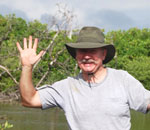
Nicholas Dunning
2020
Nicholas Dunning has made significant contributions in the areas of environmental archaeology, soils, physical geography, cultural ecology, and Latin America. Nick has devoted his scholarship to Ancient Maya subsistence, land use, and long-term environmental interactions and change. Nick’s contributions include keen insights into human ecology and the environment, especially as applied to the Ancient Maya. Nick has three degrees in geography (University of Chicago BA and MA, University of Minnesota PhD), yet the broader impacts of his work range far beyond geography into anthropology and archaeology, to epigraphy, soil chemistry, pre-Columbian Studies, and Latin American Studies. In support of his research Nick is fluent in Spanish and Yukatek Maya in addition to his native English, and has been a devoted Maya scholar since he was a young child. During graduate school, Nick’s office mates watched him draw complex maps of ancient Maya settlements and soils, as he built the field-based dataset for his brilliant 1990 dissertation Prehispanic Settlement Patterns of the Puuc Region, Yucatan. Int that work Nick painstakingly connected patterns of ancient practice with modern knowledge, building a folk taxonomy of soils of the Yucatan that not only gives us insight into ancient agricultural practice, advantages and challenges, but practical knowledge for human use of the resources of Yucatan today. He published his dissertation as the book Lords of the Hills: Ancient Maya Settlement in the Puuc Region, Mexico (Prehistory Press, 1992) and this volume remains one of the most influential and best cited works in our field. Dunning has since published more than 125 peer-reviewed papers and chapters and a dozen books, monographs, and special issues of journals, across different fields, from Culture and Agriculture in 1998 and the AAG Annals in 2002, to two articles in a special issue of Proceedings of the National Academy of Sciences in 2012, to a paper applying LiDAR in Maya Geoarchaeology in a special issue of the journal Geomorphology. Nick’s impacts on our field can be measured in many conventional ways: writing insightful papers and book chapters, high citation indices, directing 29 theses and dissertations and serving on an additional 53 graduate student committees, success in grants, teaching thousands of students physical geography at the University of Cincinnati, and leading scores of graduate and undergraduate students abroad for research in Latin America. However, Nick also measures up the most in his unwavering support, loyalty, patience and good humor with his family, friends, students, and colleagues; his careful consideration of research questions and data quality; and his keen intellectual drive. This is all against a backdrop of his facing a perilous illness several years ago, from which he proceeded to get back up and dust himself off, return to the field, and push the frontiers of geographical exploration and knowledge forward. Nick has led his research teams and generations of students on an amazing journey, without ever thinking of rewards for himself.

2020 AAG Presidential Achievement Award
Nicholas Dunning
2020 AAG Presidential Achievement Award
2020
Nicholas Dunning has made significant contributions in the areas of environmental archaeology, soils, physical geography, cultural ecology, and Latin America. Nick has devoted his scholarship to Ancient Maya subsistence, land use, and long-term environmental interactions and change. Nick’s contributions include keen insights into human ecology and the environment, especially as applied to the Ancient Maya. Nick has three degrees in geography (University of Chicago BA and MA, University of Minnesota PhD), yet the broader impacts of his work range far beyond geography into anthropology and archaeology, to epigraphy, soil chemistry, pre-Columbian Studies, and Latin American Studies. In support of his research Nick is fluent in Spanish and Yukatek Maya in addition to his native English, and has been a devoted Maya scholar since he was a young child. During graduate school, Nick’s office mates watched him draw complex maps of ancient Maya settlements and soils, as he built the field-based dataset for his brilliant 1990 dissertation Prehispanic Settlement Patterns of the Puuc Region, Yucatan. Int that work Nick painstakingly connected patterns of ancient practice with modern knowledge, building a folk taxonomy of soils of the Yucatan that not only gives us insight into ancient agricultural practice, advantages and challenges, but practical knowledge for human use of the resources of Yucatan today. He published his dissertation as the book Lords of the Hills: Ancient Maya Settlement in the Puuc Region, Mexico (Prehistory Press, 1992) and this volume remains one of the most influential and best cited works in our field. Dunning has since published more than 125 peer-reviewed papers and chapters and a dozen books, monographs, and special issues of journals, across different fields, from Culture and Agriculture in 1998 and the AAG Annals in 2002, to two articles in a special issue of Proceedings of the National Academy of Sciences in 2012, to a paper applying LiDAR in Maya Geoarchaeology in a special issue of the journal Geomorphology. Nick’s impacts on our field can be measured in many conventional ways: writing insightful papers and book chapters, high citation indices, directing 29 theses and dissertations and serving on an additional 53 graduate student committees, success in grants, teaching thousands of students physical geography at the University of Cincinnati, and leading scores of graduate and undergraduate students abroad for research in Latin America. However, Nick also measures up the most in his unwavering support, loyalty, patience and good humor with his family, friends, students, and colleagues; his careful consideration of research questions and data quality; and his keen intellectual drive. This is all against a backdrop of his facing a perilous illness several years ago, from which he proceeded to get back up and dust himself off, return to the field, and push the frontiers of geographical exploration and knowledge forward. Nick has led his research teams and generations of students on an amazing journey, without ever thinking of rewards for himself.

Rickie Sanders
2019
Rickie Sanders for enhancing diversity and inclusion in geography and championing the study of race, gender, and social justice within the discipline and beyond. Dr. Sanders powerfully uses her scholarship and her own biography to address the need for women of color in geography, to confront white privilege and gender inequality in education, and to create dialogue between racial and feminist theorists and classroom teachers. Her long-standing contributions include award-winning teaching and mentorship and leading important initiatives to broaden the participation and belonging of historically under-represented groups in the discipline.

2019 AAG Presidential Achievement Award
Rickie Sanders
2019 AAG Presidential Achievement Award
2019
Rickie Sanders for enhancing diversity and inclusion in geography and championing the study of race, gender, and social justice within the discipline and beyond. Dr. Sanders powerfully uses her scholarship and her own biography to address the need for women of color in geography, to confront white privilege and gender inequality in education, and to create dialogue between racial and feminist theorists and classroom teachers. Her long-standing contributions include award-winning teaching and mentorship and leading important initiatives to broaden the participation and belonging of historically under-represented groups in the discipline.

David Padgett
2019
David Padgett has made significant contributions in advancing geography, GIS, and STEM education within the Historically Black College and University. He has become an important authority on the opportunities, challenges, and needs facing geographers at predominantly minority-serving institutions, as well as those working in small academic programs and blended departments. Dr. Padgett has led an exemplary career in community engaged scholarship and teaching, having developed working relationships with a variety of grassroots groups, non-profits, and government agencies. His innovations in service-learning and participatory research are felt locally and through the many national workshops and funded projects he has led.

2019 AAG Presidential Achievement Award
David Padgett
2019 AAG Presidential Achievement Award
2019
David Padgett has made significant contributions in advancing geography, GIS, and STEM education within the Historically Black College and University. He has become an important authority on the opportunities, challenges, and needs facing geographers at predominantly minority-serving institutions, as well as those working in small academic programs and blended departments. Dr. Padgett has led an exemplary career in community engaged scholarship and teaching, having developed working relationships with a variety of grassroots groups, non-profits, and government agencies. His innovations in service-learning and participatory research are felt locally and through the many national workshops and funded projects he has led.
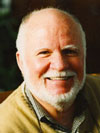
Billie L. Turner II
2018
Billie L. Turner, II for transformative research on development of land use/cover change science, and between historic/prehistoric analysis and contemporary issues. Dr. Turner has also extensively represented geography on important national and international bodies including the International Geosphere-Biosphere Programme, the International Human Dimensions Programme, and the U.S. National Climate Assessment; he also served as Associate Editor of the Proceedings of the National Academy of Sciences.

2018 AAG Presidential Achievement Award
Billie L. Turner II
2018 AAG Presidential Achievement Award
2018
Billie L. Turner, II for transformative research on development of land use/cover change science, and between historic/prehistoric analysis and contemporary issues. Dr. Turner has also extensively represented geography on important national and international bodies including the International Geosphere-Biosphere Programme, the International Human Dimensions Programme, and the U.S. National Climate Assessment; he also served as Associate Editor of the Proceedings of the National Academy of Sciences.
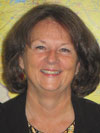
Susan Cutter
2018
Susan Cutter whose transformative research and leadership in disaster vulnerability/resilience has extended the reach of geography to other academic disciplines and to policy communities. Dr. Cutter also brings attention to issues of race, class and environmental justice to the discipline of geography. In addition, we recognize her many service contributions to the discipline, including her leadership as President of the AAG and President of the Consortium of Social Science Associations.

2018 AAG Presidential Achievement Award
Susan Cutter
2018 AAG Presidential Achievement Award
2018
Susan Cutter whose transformative research and leadership in disaster vulnerability/resilience has extended the reach of geography to other academic disciplines and to policy communities. Dr. Cutter also brings attention to issues of race, class and environmental justice to the discipline of geography. In addition, we recognize her many service contributions to the discipline, including her leadership as President of the AAG and President of the Consortium of Social Science Associations.
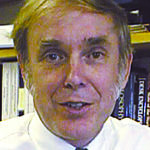
Roger Downs
2017
Roger Downs for his groundbreaking research in the development of spatial cognition in children, spatial thinking with and through geospatial technologies, and the nature and development of expertise in geography. With his colleagues in psychology and other behavioral sciences, he has explored the intersection of geography and the cognitive sciences, and produced cutting-edge work on cognitive mapping and spatial behavior.

2017 AAG Presidential Achievement Award
Roger Downs
2017 AAG Presidential Achievement Award
2017
Roger Downs for his groundbreaking research in the development of spatial cognition in children, spatial thinking with and through geospatial technologies, and the nature and development of expertise in geography. With his colleagues in psychology and other behavioral sciences, he has explored the intersection of geography and the cognitive sciences, and produced cutting-edge work on cognitive mapping and spatial behavior.

Audrey Kobayashi
2016
Audrey Kobayashi for her foundational contributions to understanding the intersectionality of gender, race, class and all forms of socio-economic difference that have reshaped what geography is and can be, and for her insistence that geography and geographers reflect critically on their whiteness. As editor, mentor, teacher, colleague and friend she has strengthened geography by encouraging new and often challenging ways of seeing and understanding our world.

2016 AAG Presidential Achievement Award
Audrey Kobayashi
2016 AAG Presidential Achievement Award
2016
Audrey Kobayashi for her foundational contributions to understanding the intersectionality of gender, race, class and all forms of socio-economic difference that have reshaped what geography is and can be, and for her insistence that geography and geographers reflect critically on their whiteness. As editor, mentor, teacher, colleague and friend she has strengthened geography by encouraging new and often challenging ways of seeing and understanding our world.
Diana Liverman
2015
Diana Liverman for her extraordinary contributions to understanding the human dimensions of global change, including the impacts of climate on society and issues of equity and climate change, and for her leadership roles in numerous boundary organizations, including “Future Earth,” that strengthen partnerships with scientists, policymakers and stakeholders to promote regional and global sustainability.
2015 AAG Presidential Achievement Award
Diana Liverman
2015 AAG Presidential Achievement Award
2015
Diana Liverman for her extraordinary contributions to understanding the human dimensions of global change, including the impacts of climate on society and issues of equity and climate change, and for her leadership roles in numerous boundary organizations, including “Future Earth,” that strengthen partnerships with scientists, policymakers and stakeholders to promote regional and global sustainability.

Doreen Massey
2014
Doreen Massey for her foundational contributions to feminist geography, geographical political economy, relational geography, conceptualizations of place and space, and emancipatory approaches to urban development.

2014 AAG Presidential Achievement Award
Doreen Massey
2014 AAG Presidential Achievement Award
2014
Doreen Massey for her foundational contributions to feminist geography, geographical political economy, relational geography, conceptualizations of place and space, and emancipatory approaches to urban development.

Bobby Wilson
2013
Bobby Wilson for his career-long dedication to anti-racist scholarship in geography, as well as for his a mentorship to many students and for the example he has set for colleagues throughout his academic career.

2013 AAG Presidential Achievement Award
Bobby Wilson
2013 AAG Presidential Achievement Award
2013
Bobby Wilson for his career-long dedication to anti-racist scholarship in geography, as well as for his a mentorship to many students and for the example he has set for colleagues throughout his academic career.

Laura Pulido
2012
Laura Pulido for her extensive work in the areas of environmental justice, radical movements of the sixties and seventies, labor studies, alternative tourism and comparative ethnic studies.

2012 AAG Presidential Achievement Award
Laura Pulido
2012 AAG Presidential Achievement Award
2012
Laura Pulido for her extensive work in the areas of environmental justice, radical movements of the sixties and seventies, labor studies, alternative tourism and comparative ethnic studies.

Dawn Wright
2012
Dawn Wright for her significant contributions and leadership in the areas of geographic information science, ocean informatics and cyberinfrastructure.

2012 AAG Presidential Achievement Award
Dawn Wright
2012 AAG Presidential Achievement Award
2012
Dawn Wright for her significant contributions and leadership in the areas of geographic information science, ocean informatics and cyberinfrastructure.
Patricia Gober
2011
Patricia Gober for her rich record of peer-reviewed publications in populations, water resource management and climate change, her creation and implementation of public fora for science-engaged decision-making and her influential leadership in the discipline in service to society.
2011 AAG Presidential Achievement Award
Patricia Gober
2011 AAG Presidential Achievement Award
2011
Patricia Gober for her rich record of peer-reviewed publications in populations, water resource management and climate change, her creation and implementation of public fora for science-engaged decision-making and her influential leadership in the discipline in service to society.
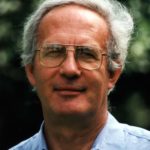
Peter Meusburger
2010
Peter Meusburger for his accomplishments strengthening ties between English and German medium geography, fostering internationalization of academic curriculum in Europe and beyond, and broadening research across political borders; and in recognition of his intellectual commitment and personal hard work towards a more international geography.

2010 AAG Presidential Achievement Award
Peter Meusburger
2010 AAG Presidential Achievement Award
2010
Peter Meusburger for his accomplishments strengthening ties between English and German medium geography, fostering internationalization of academic curriculum in Europe and beyond, and broadening research across political borders; and in recognition of his intellectual commitment and personal hard work towards a more international geography.

Douglas B. Richardson
2009
Douglas B. Richardson for his outstanding service as a geographer, as the leader of a path-breaking company that advanced geographic information science and technology, and as the Executive Director of the Association of American Geographers, which he has enabled to be a strong, cohesive, inclusive, and vibrant organization working to advance geography now and in the future.

2009 AAG Presidential Achievement Award
Douglas B. Richardson
2009 AAG Presidential Achievement Award
2009
Douglas B. Richardson for his outstanding service as a geographer, as the leader of a path-breaking company that advanced geographic information science and technology, and as the Executive Director of the Association of American Geographers, which he has enabled to be a strong, cohesive, inclusive, and vibrant organization working to advance geography now and in the future.
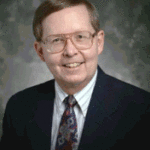
Thomas J. Wilbanks
2009
Thomas J. Wilbanks for his long-standing and wide-ranging contributions within and beyond geography as a scholar, an administrator, a community leader, and a highly effective integrator of insights from geography and other fields to address significant societal problems

2009 AAG Presidential Achievement Award
Thomas J. Wilbanks
2009 AAG Presidential Achievement Award
2009
Thomas J. Wilbanks for his long-standing and wide-ranging contributions within and beyond geography as a scholar, an administrator, a community leader, and a highly effective integrator of insights from geography and other fields to address significant societal problems
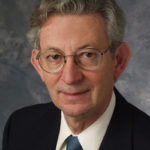
David Ward
2008
David Ward for his role as a prominent geography leader and as a key contributor to our discipline and to higher education as a whole, in particular regarding his success in advancing issues of international education.

2008 AAG Presidential Achievement Award
David Ward
2008 AAG Presidential Achievement Award
2008
David Ward for his role as a prominent geography leader and as a key contributor to our discipline and to higher education as a whole, in particular regarding his success in advancing issues of international education.
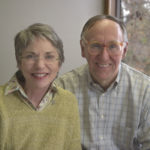
Laura and Jack Dangermond
2007
Laura and Jack Dangermond for their universally recognized creative force and long-time leading pioneering efforts in the field of Geographic Information Systems, and for their generosity toward many worthy social and educational programs in geography aiming to make a difference in the world.

2007 AAG Presidential Achievement Award
Laura and Jack Dangermond
2007 AAG Presidential Achievement Award
2007
Laura and Jack Dangermond for their universally recognized creative force and long-time leading pioneering efforts in the field of Geographic Information Systems, and for their generosity toward many worthy social and educational programs in geography aiming to make a difference in the world.
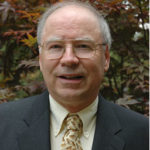
James C. Knox
2007
James C. Knox for his extraordinary contributions to geography and the stature of the discipline through his prolific teaching, international research in geomorphology and paleohydrology, his mentoring of students, and his selfless service.

2007 AAG Presidential Achievement Award
James C. Knox
2007 AAG Presidential Achievement Award
2007
James C. Knox for his extraordinary contributions to geography and the stature of the discipline through his prolific teaching, international research in geomorphology and paleohydrology, his mentoring of students, and his selfless service.
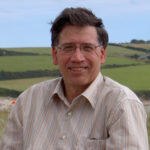
Trevor Barnes
2006
Trevor Barnes for his exceptional scholarship on the quantitative revolution and for his substantial contributions to the understanding of the history of human geography, science studies, regional science, and economic geography.

2006 AAG Presidential Achievement Award
Trevor Barnes
2006 AAG Presidential Achievement Award
2006
Trevor Barnes for his exceptional scholarship on the quantitative revolution and for his substantial contributions to the understanding of the history of human geography, science studies, regional science, and economic geography.
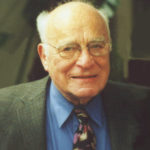
Wilbur Zelinsky
2006
Wilbur Zelinsky for his long and distinguished career in geography; for the influence of his publications across a wide range of topics in human geography; and for his early and fervent support for the incorporation of more women into the discipline.

2006 AAG Presidential Achievement Award
Wilbur Zelinsky
2006 AAG Presidential Achievement Award
2006
Wilbur Zelinsky for his long and distinguished career in geography; for the influence of his publications across a wide range of topics in human geography; and for his early and fervent support for the incorporation of more women into the discipline.
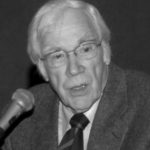
Donald W. Meinig
2005
Donald W. Meinig for his extraordinary contributions to geography and the stature of geography as a discipline through his teaching, research, and writing.

2005 AAG Presidential Achievement Award
Donald W. Meinig
2005 AAG Presidential Achievement Award
2005
Donald W. Meinig for his extraordinary contributions to geography and the stature of geography as a discipline through his teaching, research, and writing.
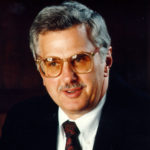
Bruce Alberts
2004
Bruce Alberts for his distinguished contributions to the discipline of geography through outstanding vision and administration of the NAS and for his support of geography within the National Academies.

2004 AAG Presidential Achievement Award
Bruce Alberts
2004 AAG Presidential Achievement Award
2004
Bruce Alberts for his distinguished contributions to the discipline of geography through outstanding vision and administration of the NAS and for his support of geography within the National Academies.
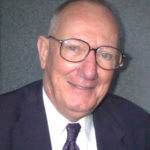
Harm J. de Blij
2004
Harm J. de Blij for his extraordinary contributions to the advancement of the discipline and for his longstanding contributions to the public awareness for geography both nationally and internationally.

2004 AAG Presidential Achievement Award
Harm J. de Blij
2004 AAG Presidential Achievement Award
2004
Harm J. de Blij for his extraordinary contributions to the advancement of the discipline and for his longstanding contributions to the public awareness for geography both nationally and internationally.
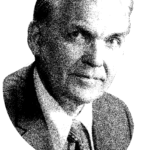
Alan M. Voorhees
2004
Alan M. Voorhees for his exemplary professional career as scientist, educator, preeminent planner, and philanthropist, throughout which he has advocated for geography and has made significant intellectual and applied contributions, and for his dedication to expanding geography’s role in improving our world.

2004 AAG Presidential Achievement Award
Alan M. Voorhees
2004 AAG Presidential Achievement Award
2004
Alan M. Voorhees for his exemplary professional career as scientist, educator, preeminent planner, and philanthropist, throughout which he has advocated for geography and has made significant intellectual and applied contributions, and for his dedication to expanding geography’s role in improving our world.